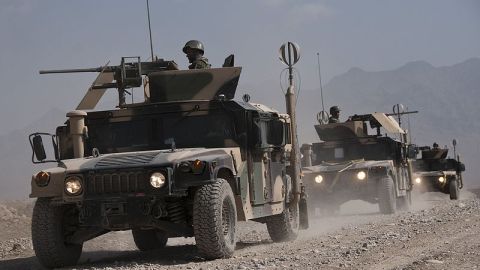Afghanistan, Graveyard of Politicians

Shortly after President Obama finished his speech outlining his plan to bring the war in Afghanistan to a successful conclusion, bloggers have rushed to remind us that Afghanistan is “the graveyard of empires.” The phrase, attributed to Mahmud Tarzi, one of the key figures of Afghan independence, is meant to remind us of the sorry history of foreign occupations in Afghanistan. Historically Afghanistan has been, as The Daily Show put it, “the gold standard for quagmires.”
Neither the British nor the Russians were able to govern Afghanistan. One British army was so badly massacred retreating from Kabul in 1842 that only one of 16,000 troops made it back to the British garrison—and he had reportedly been let live only to serve as a warning. In the 1980s, the Soviets’ expensive and demoralizing failure to control Afghanistan contributed to the collapse of the Soviet Union.
But while Afghans are famously independent and difficult to govern, the challenges we face there are not the same as the ones faced by the British or the the Soviets. As Obama pointed out in his speech, we do not face in the Taliban a broad, popular insurgency. The problem is not so much that we risk a military defeat as it is that it is not clear exactly what we hope to achieve in Afghanistan, or what scenario would even constitute a victory.
Afghanistan’s current government is widely seen as one of the most corrupt in the world—according to Transparency International, it is second only to the government of Somalia, such as it is. Hamid Karzai, Afghanistan’s current president, recently returned to office in an election marked by widespread fraud. Both his running mate, Marshal Fahim, and his brother, Ahmed Wali Karzai—now the head of the Kandahar Provincial Council—are generally believed to be involved in the drug trade. During her confirmation hearing, Secretary of State Clinton called Afghanistan a “narco-state.” Moreover, the key to improving the military situation in Afghanistan—as well as the key to rooting out Al Qaida—probably lies across the border in Pakistan. So the success of Obama’s strategy—as he acknowledged in his speech—largely depends upon Pakistan’s willingness and ability to take on the Taliban in Swat and Waziristan.
These are not problems that American military power can easily solve. More than anything, we are staying in Afghanistan to prevent the country from falling to the Taliban or collapsing completely, not because we have any way to resolve its longer-term problems. The truth is that Obama has inherited a no-win scenario: he can either keep his troops fighting a war we can’t really win or bring them home and be blamed for consequences of our withdrawal. The policy he outlined last night reflects this dilemma. In the short run he hopes to the stabilize the situation by adding more troops. But in the next two years he wants to begin cutting our losses and pulling our troops.
It may be as good a solution as any. But it is likely to please no one. Sen. John McCain (R-AZ) has already criticized Obama for sending the wrong message by setting an arbitrary date for withdrawal. And on the left Michael Moore has accused Obama of having “drunk Bush’s koolaid.” But Obama probably realizes that there is no easy solution to our problems in Afghanistan and that he will be criticized for having failed in Afghanistan practically no matter what he does. All he can reasonably hope to do is to stabilize the situation a little, preferably before the next election.





